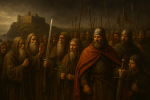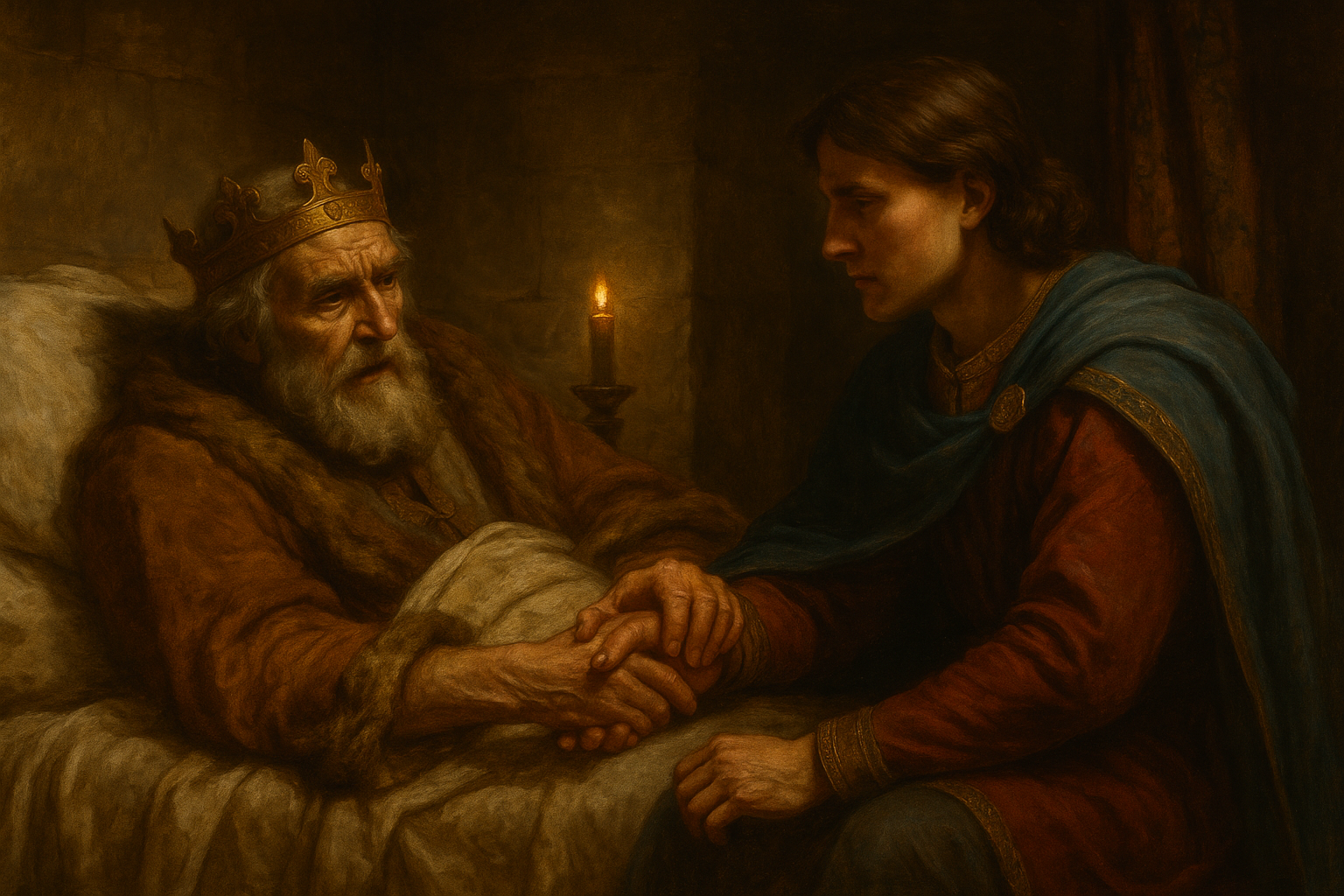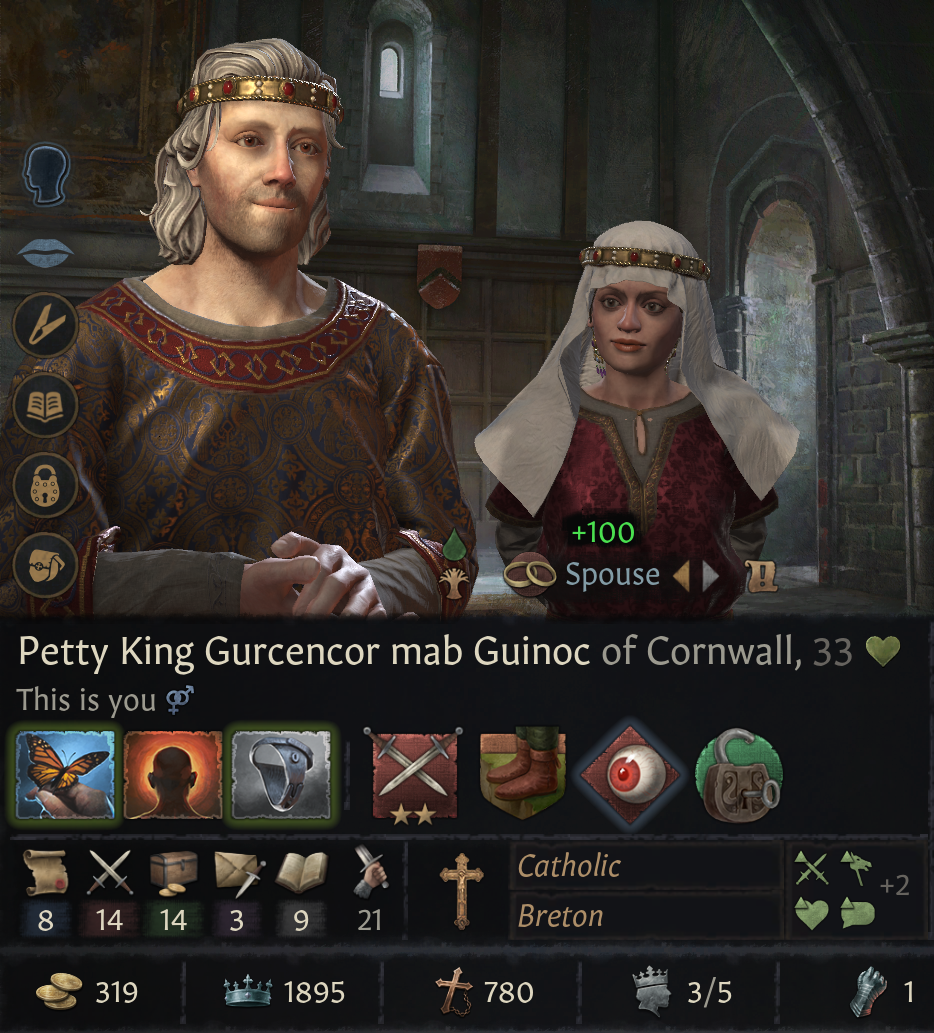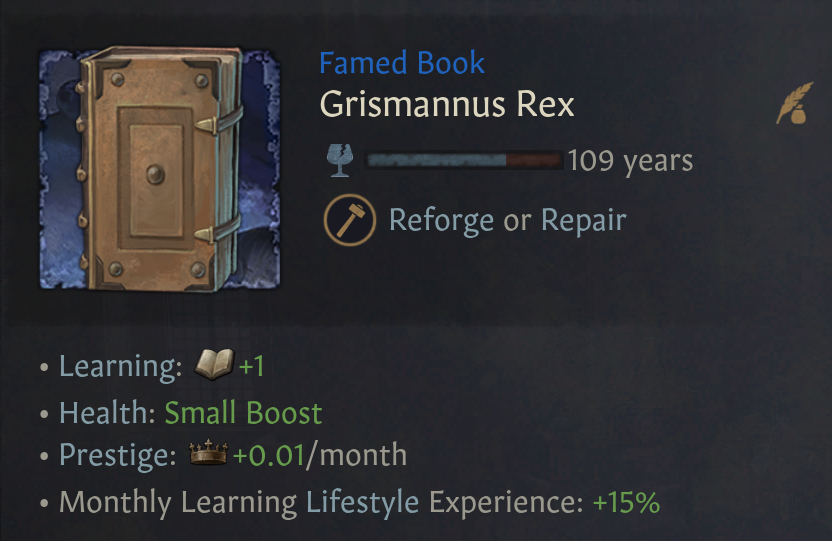Nine Tales of Antonine
1. The Antonine Vision
Before him loomed the ancient stones, still and silent.
Reclaim the stones and Britannia will follow.
The words struck the warrior like a blade of light through shadow.
He stood alone at Stonehenge; the wind dead, the stars veiled by cloud. He was hungry and tired after his long journey; his vision blurred at the edges. He had come to pray, to beg for a sign from the Lord.
Instead, the voice had come. It had come from the marrow of the earth; deep, terrible, and holy.
He looked up and saw the stones glow with a pale gold fire, and in the flickering light he beheld three visions: of Bretons kneeling in unity; of Saxon banners burning; of an oaken throne, crowned by the glory of the Lord. And above all three, a red diamond.
The voice came again, urgent and commanding:
Reclaim the stones and Britannia will follow.
The warrior fell to his knees and swore his life, his blood, and the blood of all his sons and daughters to the stones, and to the cause they demanded.
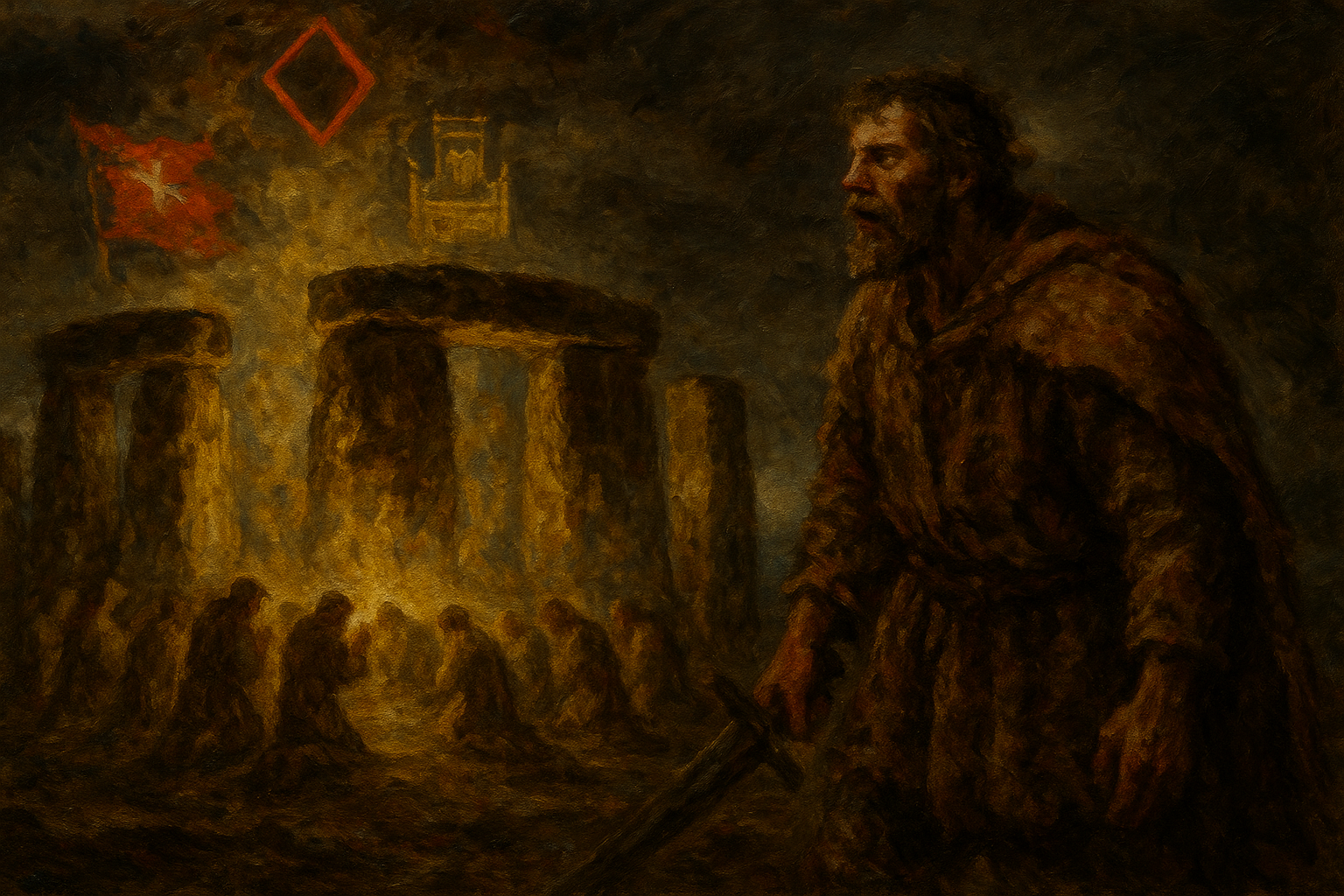
1. The Antonine Vision
Before him loomed the ancient stones, still and silent.
Reclaim the stones and Britannia will follow.
The words struck the warrior like a blade of light through shadow.
He stood alone at Stonehenge; the wind dead, the stars veiled by cloud. He was hungry and tired after his long journey; his vision blurred at the edges. He had come to pray, to beg for a sign from the Lord.
Instead, the voice had come. It had come from the marrow of the earth; deep, terrible, and holy.
He looked up and saw the stones glow with a pale gold fire, and in the flickering light he beheld three visions: of Bretons kneeling in unity; of Saxon banners burning; of an oaken throne, crowned by the glory of the Lord. And above all three, a red diamond.
The voice came again, urgent and commanding:
Reclaim the stones and Britannia will follow.
The warrior fell to his knees and swore his life, his blood, and the blood of all his sons and daughters to the stones, and to the cause they demanded.

Last edited:
- 3
- 2


